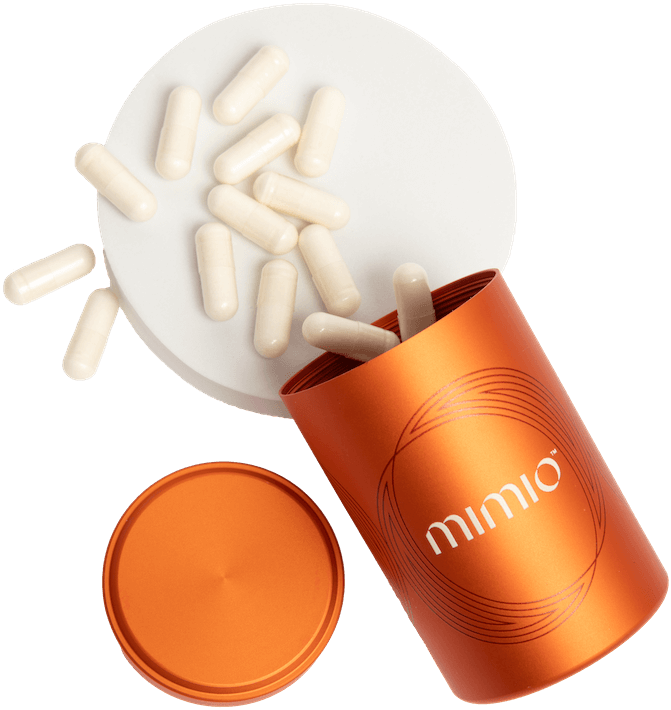Sleep is one of the most underrated health hacks. It’s essential for brain function, metabolism, immune health, and even longevity. Yet, nearly 1 in 3 adults struggle with sleep issues—tossing, turning, or waking up feeling like they didn’t sleep at all.
The good news? You might not need prescription meds to get better rest. Natural sleep aids can help calm the mind, support melatonin production, and optimize your body's sleep-wake cycle—without the grogginess of traditional sleep aids.
So, what actually works? Let’s break down the most effective natural sleep aids, backed by science.
Why Sleep Matters for Longevity
Before we dive into remedies, let’s talk about why sleep is so important. Studies show that chronic sleep deprivation can cut your lifespan short by increasing the risk of:
-
Heart disease – Poor sleep is linked to high blood pressure and heart attacks.
-
Cognitive decline – Sleep is when your brain clears out toxins. Without enough sleep, your risk for Alzheimer’s and dementia rises.
-
Metabolic issues – Lack of sleep leads to insulin resistance, weight gain, and increased inflammation.
On the flip side, getting high-quality sleep helps regulate metabolism, reduce stress, and even activate cellular repair pathways—keeping you healthier for longer.
The Best Natural Sleep Aids
Not all sleep remedies are created equal. Here are the most effective, research-backed natural sleep aids to help you fall asleep faster and wake up feeling refreshed.
1. Magnesium: The Ultimate Sleep Mineral
Magnesium is one of the most effective natural sleep aids because it helps regulate neurotransmitters involved in sleep, like GABA (gamma-aminobutyric acid (more on this later)). Low levels of magnesium are linked to insomnia, restless sleep, and even anxiety.
Best sources:
-
Magnesium glycinate (highly absorbable and calming)
-
Magnesium-rich foods like dark leafy greens, nuts, and seeds
-
Epsom salt baths (absorbed through the skin for muscle relaxation)
2. Melatonin: The Sleep Hormone
Melatonin is your body’s natural sleep-wake regulator. It rises in the evening to signal bedtime and decreases in the morning to help you wake up.
But here’s the catch: Taking too much melatonin can throw off your body’s natural rhythm. Instead of relying on high-dose supplements, try low-dose melatonin (0.5–3 mg) or foods that naturally boost melatonin production.
Best sources:
-
Tart cherries and cherry juice
-
Kiwi (shown to improve sleep in clinical studies)
-
Nuts, especially almonds and walnuts
3. Valerian Root: Nature’s Sedative
Valerian root has been used for centuries to promote relaxation and deep sleep. Studies show it increases GABA levels, similar to anti-anxiety medications, but without the side effects.
How to use:
-
Drink valerian root tea 30–60 minutes before bed
-
Try valerian root supplements (300–600 mg) for sleep support
4. L-Theanine: The Calm-Boosting Amino Acid
L-theanine, an amino acid found in green tea, promotes relaxation without drowsiness. It helps increase alpha brain waves—the same brain waves associated with meditation and deep relaxation.
Best sources:
-
Green tea (opt for caffeine-free options before bed)
-
L-theanine supplements (100–200 mg)
5. Adaptogens: Stress-Reducing Herbal Remedies
Chronic stress is one of the biggest sleep disruptors. Adaptogens—herbs that help your body adapt to stress—can be powerful natural sleep aids by balancing cortisol levels and calming the nervous system.
Best adaptogens for sleep:
-
Ashwagandha – Lowers cortisol and improves sleep quality
-
Rhodiola rosea – Supports resilience to stress and reduces fatigue
-
Reishi mushroom – Promotes relaxation and deep sleep
6. GABA: The Brain’s Natural Relaxant
GABA is a neurotransmitter that reduces nervous system activity, helping you unwind and prepare for sleep. Low GABA levels are linked to insomnia, anxiety, and restless sleep.
How to boost GABA naturally:
-
Fermented foods (kimchi, miso, tempeh)
-
Herbal teas like valerian root and chamomile
-
GABA supplements (250–500 mg before bed)
7. Glycine: The Overlooked Sleep Amino Acid
Glycine is an amino acid that helps lower body temperature and promote deeper sleep. One study found that taking 3 grams of glycine before bed helped people fall asleep faster and wake up feeling more refreshed.
Best sources:
-
Bone broth
-
Collagen protein
-
Glycine supplements
8. CBD & CBN: Cannabinoids for Sleep Support
CBD (cannabidiol) and CBN (cannabinol) interact with the endocannabinoid system to promote relaxation and improve sleep quality. CBN, in particular, has sedative effects that can help with sleep onset and duration.
Best sources:
-
Full-spectrum CBD oil with CBN
-
CBD-infused teas or tinctures before bed
Lifestyle Habits for Better Sleep
Natural sleep aids work best when combined with healthy sleep habits. Here’s how to optimize your routine for better, deeper sleep:
1. Stick to a Consistent Sleep Schedule
Going to bed and waking up at the same time every day helps regulate your circadian rhythm, making it easier to fall asleep naturally.
2. Limit Blue Light Before Bed
Exposure to screens (phones, TVs, laptops) suppresses melatonin production. Try:
-
Using blue light-blocking glasses in the evening
-
Switching to warm, dim lighting at night
-
Avoiding screens 1–2 hours before bed
3. Create a Relaxing Nighttime Routine
Your body needs a wind-down period to transition into sleep mode. Try:
-
Reading a book (instead of scrolling on your phone)
-
Taking a warm bath with Epsom salts
-
Practicing deep breathing or meditation
4. Optimize Your Sleep Environment
Your bedroom should be cool, dark, and quiet to promote deep sleep. Simple upgrades include:
-
Blackout curtains to block light
-
A white noise machine to drown out disturbances
-
Cooling pillows and breathable sheets to regulate body temperature
5. Avoid Caffeine and Alcohol Before Bed
Caffeine can stay in your system for 6–8 hours, so avoid coffee and energy drinks in the afternoon. While alcohol might make you feel sleepy, it actually disrupts deep sleep and REM cycles, leading to poor sleep quality.
The Role of Cellular Health in Sleep
Sleep isn’t just about feeling rested—it’s when your body repairs itself at a cellular level. Natural sleep aids can help, but supporting cellular health is just as important.
Supplements like Mimio Biomimetic Cell Care help to balance energy and metabolism, reduce inflammation, and support better sleep.
The most effective natural sleep aids work by supporting your body's own sleep-regulating systems—balancing neurotransmitters, lowering stress, and optimizing circadian rhythms.
By combining smart supplementation with lifestyle changes, you can get the deep, restorative sleep your body needs to function at its best.



